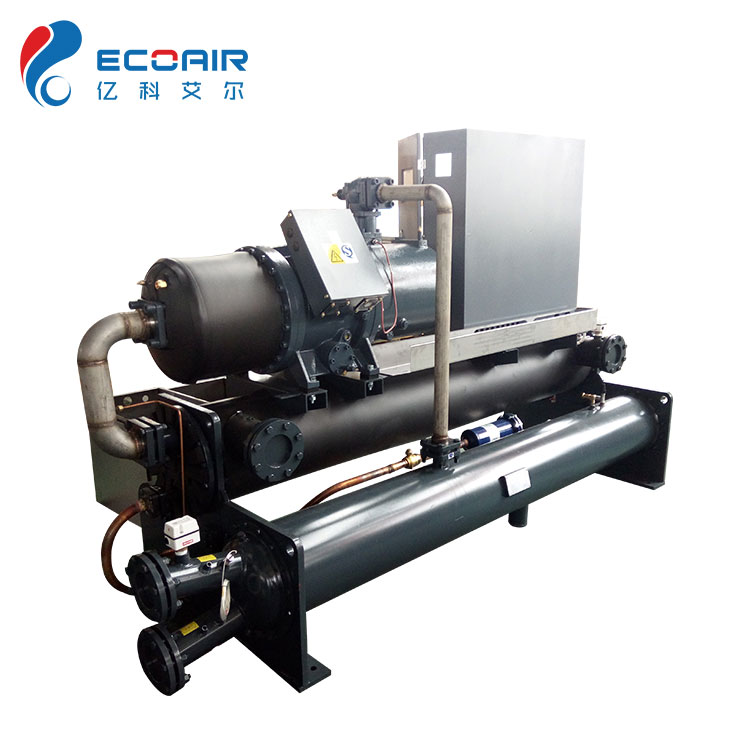Why Should You Consider a Water Cooled Chiller for Your Cooling Needs?
2024-12-21
In today’s industrial and commercial sectors, maintaining a controlled environment is essential for optimal performance. Whether it's for HVAC systems, manufacturing processes, or data centers, efficient cooling solutions are crucial. One such solution gaining popularity is the water cooled chiller. But why should you consider investing in this type of chiller for your cooling needs? In this blog, we’ll explore the benefits and applications of water cooled chillers, and how they can improve energy efficiency and operational performance.
1. How Do Water Cooled Chillers Work?
Before diving into the benefits, it's important to understand how a water cooled chiller operates. A water cooled chiller uses water to absorb heat from a cooling system and then expels that heat through a cooling tower. The process involves circulating chilled water through an evaporator to cool the desired space or equipment, while the heat is transferred to the cooling tower, where it is released into the atmosphere.
The water used in the cooling process is typically circulated through pipes and recycled, which makes this system more energy-efficient and sustainable compared to air-cooled systems. Water cooled chillers are often preferred in larger buildings or industrial settings where high cooling loads are required.
2. What Are the Benefits of a Water Cooled Chiller?
- Energy Efficiency
One of the primary advantages of water cooled chillers is their energy efficiency. They are generally more efficient than air-cooled chillers, as water has a higher heat capacity than air, which allows for better heat absorption and cooling. Water cooled chillers use less energy to achieve the same or better cooling results, which can lead to significant savings in energy bills, especially in large facilities.
- Lower Operating Costs
Due to their high energy efficiency, water cooled chillers often have lower operating costs in the long run. While the initial installation may be more expensive than air-cooled systems, the reduced energy consumption and lower maintenance costs can make it a more cost-effective solution over time.
- Better Performance in High Ambient Temperatures
Water cooled chillers perform better in high ambient temperatures, as they rely on water, which can absorb more heat compared to air. In hot environments, an air-cooled system may struggle to maintain optimal cooling levels, while a water cooled chiller continues to perform efficiently. This makes water cooled chillers ideal for areas with extreme heat or high cooling demands.
3. Are Water Cooled Chillers Environmentally Friendly?
As sustainability becomes an increasingly important factor in business operations, water cooled chillers offer several environmental benefits. Their energy efficiency reduces the overall energy consumption, which directly lowers the carbon footprint of a facility. Additionally, many water cooled chillers are designed with eco-friendly refrigerants that help minimize the impact on the environment.
Furthermore, since water cooled chillers recycle water, they contribute to a more sustainable use of resources, especially in areas where water conservation is a priority. With the growing push for green building certifications, water cooled chillers are an excellent option for companies looking to improve their environmental performance.
4. What Applications Benefit from Water Cooled Chillers?
- HVAC Systems
Water cooled chillers are commonly used in large commercial buildings, such as office complexes, hotels, and malls, where they provide efficient and reliable cooling for air conditioning systems. Their ability to handle high cooling loads makes them ideal for keeping large spaces comfortable.
- Industrial Cooling
Industries such as food and beverage processing, pharmaceuticals, and plastics manufacturing rely on water cooled chillers to maintain optimal temperatures for machinery and production processes. These chillers ensure that equipment remains at the correct operating temperature, preventing overheating and potential breakdowns.
- Data Centers
In data centers, where the cooling demands are high and constant, water cooled chillers offer an effective solution. The cooling systems are crucial to maintaining the stability and performance of servers and other critical IT equipment. Water cooled chillers provide the capacity needed to keep the environment at the ideal temperature for smooth operations.
5. What Are the Challenges of Using a Water Cooled Chiller?
While water cooled chillers offer several benefits, they are not without their challenges. One of the main drawbacks is their initial installation cost, which can be higher than air-cooled systems due to the need for additional components, such as cooling towers and water treatment systems.
Maintenance can also be more complex, as the water needs to be properly treated to prevent scale buildup or corrosion in the system. Regular inspections and maintenance are necessary to ensure optimal performance and longevity.
Final Thoughts
Water cooled chillers offer an energy-efficient, environmentally friendly, and high-performance solution for cooling in large-scale applications. From HVAC systems to industrial cooling and data centers, they provide significant benefits in terms of cost savings, performance, and sustainability.
If you're considering a cooling system upgrade or planning a new installation, a water cooled chiller might be the right choice for your needs. Have you considered a water cooled chiller for your operations? Share your thoughts and questions with us in the comments below!



